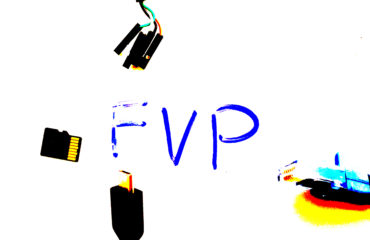As we enter the new year, we’d like to give thanks and appreciation to our customers, employees and partners. We wish you all a happy new year and look forward to working with you on interesting and challenging projects. We thought this would also be a great opportunity to look back at our highlights of 2021.
Over the year gone we’ve acquired new customers yet continued to serve our existing customers – this growth in demand has resulted in us hiring 3 new experienced engineers. In 2021 Adrian Sweet, Marc Kelly and Bennie Affleck joined us bringing more than 60 years of combined experienced with them. We are continuing to grow in 2022 and are actively recruiting for our next engineers to join our team. You can find out more on our careers page.
In 2021 we worked on a broad range of device classes including camera based systems for both consumer and industrial markets, a home medical device, an access control system, advertising displays and baseboard management for high performance computing. The platforms we’ve worked on have been just as varied including NXP’s i.MX8, LS1012A and MPC8313, Ambarella’s CV22, NVIDIA’s X1 (Jetson Nano), Broadcom’s BCM283x (Raspberry Pi), Xilinx’s ZU9EG and ST’s STM32. Our customers have also been varied in their size and location reaching beyond the UK to Europe and South Africa.
As Yocto continues to become the de-facto distribution builder, it’s no surprise that the vast majority of our projects have involved Yocto BSP development in some shape or form. In 2021 our engineers have created Yocto distributions for new and custom hardware. We’ve written dozens of Yocto layers, recipes and bbclasses. And we’ve even ported existing distributions to Yocto (for example the Ambarella CV22). We’ve gained some new experience too, for example integrating NPM packages as well as integrating newer versions of the JDK. In 2021 we also worked with OpenBMC and RDK which are distributions of Yocto targeted at baseboard management and set-top boxes respectively.
Securing embedded devices is often a necessity and as such we’ve enabled secure boot in many of our customers devices as well as performing security hardening. The security hardening work has given us an opportunity to learn and write about the many features that Yocto provides for hardening – including using security flags and identifying packages with CVEs. We’ve taken a deep dive in understanding how the security engine of the Jetson Nano works which has allowed us to support an encrypted filesystem with secure key storage and without Trusty.
In 2021 we also got our hands on a RISC-V pre-production development board that is truly open source with it’s software, hardware design and instruction set architecture all being made available under open-source licenses. We made use of this to learn and write about OpenSBI – which performs a similar role to that of Arm Trusted Firmware (ATF) on ARM platforms. We also started learning and writing about Rust. We believe that both Rust and RISC-V will become more prevalent in the future – in fact we’re already starting to see Rust in the Linux kernel.
In 2021 we’ve found ourselves providing support for several MIPI DSI displays and MIPI CSI cameras. We’ve gained a great deal of experience in this area – though mostly with i.MX8 platforms. We’ve implemented DSI display drivers and worked through the challenges of limited documentation and magic manufacturer provided initialisation sequences. For CSI cameras we’ve gained a good understanding of the i.MX8 software stack, gained experience in working with sensors from particular vendors and learnt techniques for debugging and diagnosing why a captured image is not as expected.
We’ve also found ourselves performing optimisation – we used a GPU to optimise demosaicing and we’ve reduced the boot time of an i.MX8 board to less than 3 seconds (demo coming soon). We’re hoping to focus more of our time to this area this coming year.
We’ve also made open-source contributions in 2021, though not as many as we’d like – we’re hoping to increase this in the coming year – as well as our participation in open-source conferences.
Despite our focus on embedded Linux – we can’t resist a challenge or working on something new – so in 2021 we also worked in other areas including Android, STM32 firmware and C++ application software development.
We like for our work to speak for itself and so in 2021 we set up a Trust Pilot page. We wanted to provide a means for our customers to provide feedback in an open, independent and transparent way – thus allowing future potential customers to judge the quality of our service. We do everything we can to keep our customers happy and welcome customer feedback whether publicly or privately.
Finally, as has become our Christmas tradition, we raise money for charities that have an impact on the communities where our employees work. This time we raised £500 for the Newborn Intensive Care unit (NICU) at the Royal United Hospital (RUH) in Bath. We hope we can do more in 2022.
We’ve had an interesting and busy year. We’re looking forward to another years worth of growth, projects and learning. Please don’t hesitate to reach out to us if you need assistance with your project – we’d love to find out more.







